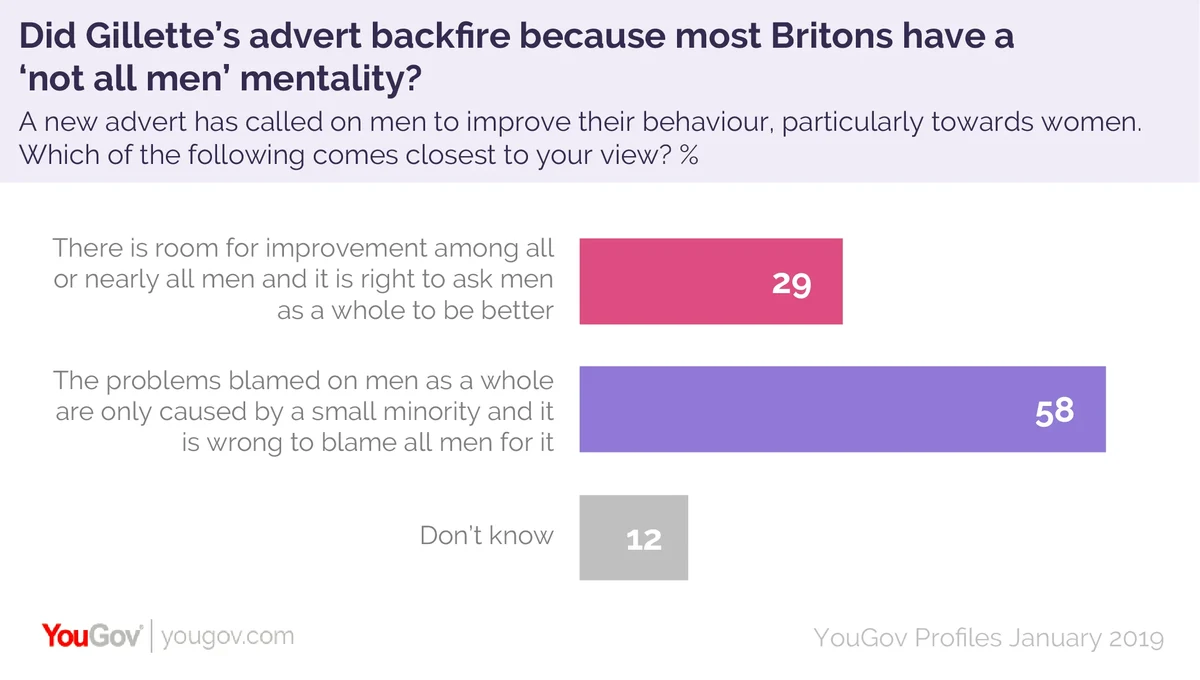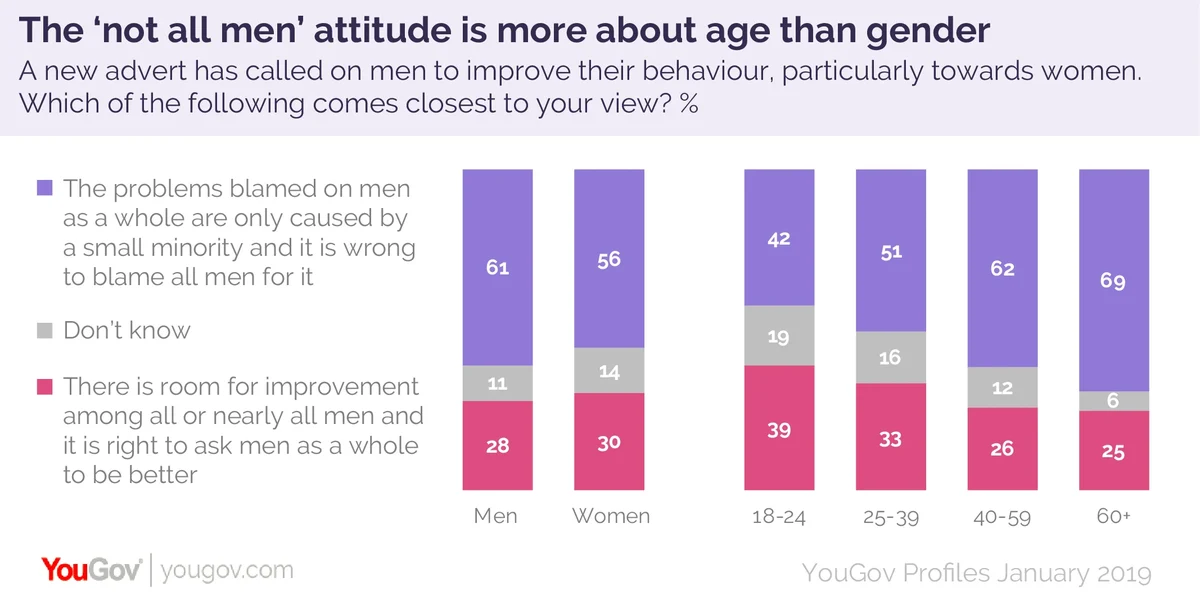Only three in ten Brits think it’s fair to ask men as a whole to be better
A few weeks ago a well-intentioned advert from Gillette caused controversy by attempting to tackle toxic masculinity, calling on men to hold one another accountable for their actions.
Many of the advert’s critics claimed it tarred all men with the same brush, a common refrain often seen on social media when someone calls out bad male behaviour - often accompanied by the hashtag #notallmen.
Following the response to the advert, YouGov Profiles data of more than 27,000 people tested the nation’s opinion on asking men as an entire sex to improve their behaviour.
We asked Britons which view came closest to their own: “there is room for improvement among all or nearly all men and it is right to ask men as a whole to be better” or “the problems blamed on men as a whole are only caused by a small minority and it is wrong to blame all men for it”.
The results show that the majority – 58% – feel it’s wrong to hold all men accountable for the actions of a few. Only 29% think that it’s acceptable to ask men as a whole to be better.

If you expected the genders to be split in their opinions, you’d be wrong. Similar numbers of men (61%) and women (56%) think that such problems blamed on men in general are misdirected, while 28% of men and 30% of women took the opposing view.
This is instead a generational issue. The youngest Britons – 18 to 24 year olds – are near evenly split on the options, with 39% saying it’s appropriate to ask all men to be better, and 42% say criticism should not be directed at all men.
However these figures steadily diverge with each older age group, with just 25% of those aged 60 and older saying it’s right to demand all men up their game, compared to 69% who hold the ‘not all men’ view.

Not all men and feminism
The two sides of the #notallmen divide are also split on other gender issues.
While three quarters (74%) of those who think it’s right to ask men as a whole to be better believe that the definition of feminism is “that women and men should be equal”, barely a majority (54%) of the #notallmen group say the same.
By contrast, 38% of the #notallmen group think the definition of feminism is “to be pro-women (at the expense of men). Just 16% of the opposing group believe this to be the case.
Likewise, half (51%) of those who think it’s right to ask men as a whole to be better say that the world would be a better place if women were in charge. Just a quarter (27%) of those with the #notallmen group agree.
The Gillette backlash seems perhaps more inevitable in the light of the fact that only 29% of the #notallmen group say they like brands that are willing to get involved in societal issues. This is far lower than it is among those who think it is right to ask men as a whole to be better (51%).
The #notallmen crowd are likewise unimpressed by celebrities espousing their own political and social views – fully 64% think they should refrain from doing so at award ceremonies, while just 35% of those who say it is right to ask men as a whole to improve their behaviour are in agreement.
(These differences hold up even when you take into account the age differences between the two groups).
Photo: Getty









